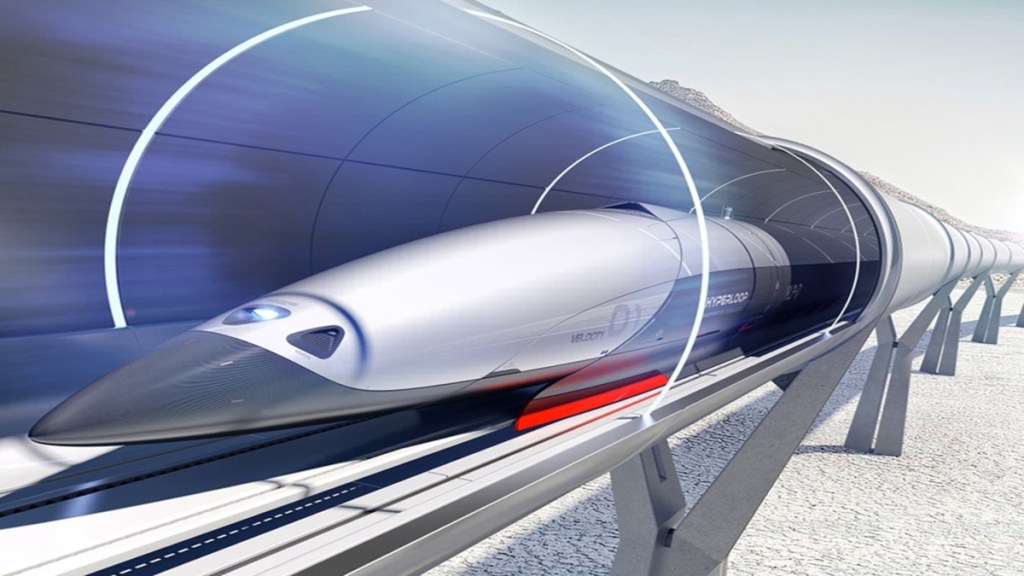India has moved closer to realising its vision of Hyperloop transportation with the completion of a 410-meter-long test track in Chennai. Located at the Indian Institute of Technology (IIT) Madras’ Discovery Campus in Thaiyur, the project represents a major milestone in the country’s journey toward high-speed and sustainable transport solutions.
Railways Minister Ashwini Vaishnaw shared the achievement on December 5 via X, stating, “Bharat’s first Hyperloop test track (410 meters) completed.” He also congratulated Indian Railways, the IIT-Madras Avishkar Hyperloop team, and TuTr Hyperloop, a deep-tech startup incubated at IIT Madras, for their collaborative efforts in bringing this ambitious project to fruition.
What Is Hyperloop Technology?
Hyperloop is an ultra-fast, eco-friendly transportation system. It features pods that travel at remarkable speeds—up to 1,207 km/h—inside low-pressure tubes. This design minimises air resistance and friction, allowing passengers to traverse vast distances in record time.
Initially conceptualised centuries ago, Hyperloop technology gained renewed attention in 2013 when Elon Musk presented a white paper outlining its feasibility. Musk’s vision described a system capable of revolutionising transport, providing an alternative to traditional rail and air travel.
Hyperloop in India: A Game Changer?
India’s ambitious Hyperloop dreams are taking shape with the completion of a 410-meter-long test track in Chennai, located at IIT Madras’ Discovery Campus. This marks a significant commitment to pioneering high-speed, sustainable transportation. Initial trials will begin at speeds of 100 km/h, with later tests targeting 600 km/h on extended tracks.
- Travel Time Reduction: Hyperloop could cut urban commute times dramatically, covering 60 km in just 15 minutes.
- Metro Rail Support: High-speed corridors could integrate seamlessly with existing Metro systems.
- Sustainability: Operating in vacuum-sealed tubes, Hyperloop aligns with India’s green transport objectives through energy efficiency.
The project includes two phases: an 11.5-km track for initial testing and a potential 100-km extension. Despite scalability and cost hurdles, partnerships with TuTr Hyperloop and Indian Railways underscore the project’s momentum.
Mumbai-Pune Corridor
The Mumbai-Pune Hyperloop, promising travel times of 25 minutes, could be India’s first full-scale deployment. While in early stages, the initiative reflects Hyperloop’s transformative potential, blending speed, efficiency, and innovation for urban mobility.
